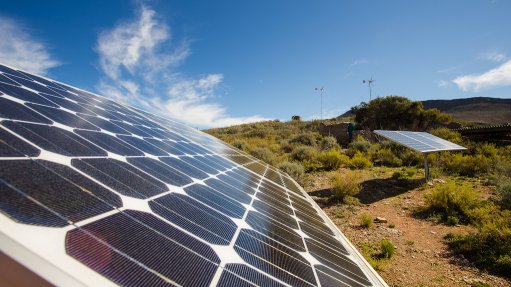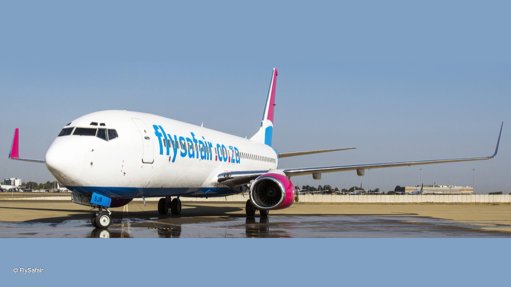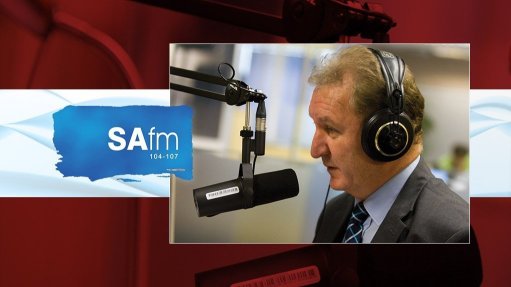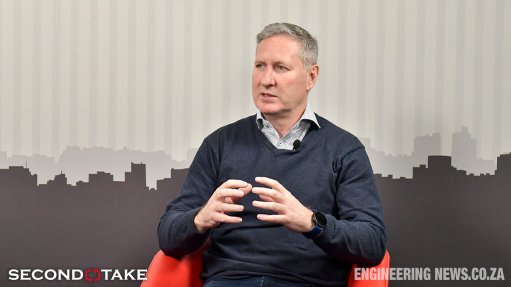Tariffs are rising: Why South African businesses must build resilience now
This article has been supplied and will be available for a limited time only on this website.
By: Goitseona Raseroka - Supply Chain lead for Accenture, Africa
There has been a noticeable shift in global trade, and while it might feel distant, it is already knocking on South Africa’s door. Tariffs are climbing again, fast, and hard. Our research shows that the average US tariff rate has risen from around 2.4 percent at the end of 2024 to 29 percent today. That is the highest level in over a century. And while the headlines focus on Washington and Beijing, the ripple effects of this new wave are reaching every trading nation, including our own.
South African businesses cannot afford to shrug this off. When tariffs rise in the United States or Europe, the cost of goods increases across supply chains. Components become more expensive. Shipping becomes unpredictable. And somewhere down the line, the cost shows up on South African shelves. Whether it is an imported machine part, a mobile phone, or even something as ordinary as packaging material, we all pay more. Accenture estimates that for American households, this tariff shock could add the equivalent of around forty thousand rand per year in extra costs. Now imagine what that kind of inflationary pressure could mean for South African consumers, especially as the Reserve Bank tries to keep inflation in check and households battle higher food and fuel prices.
But it is not just the cost that is troubling. It is the unpredictability. These tariffs are not being introduced in a slow and considered manner. They arrive fast, they shift quickly, and they often come with little warning. One month a sector is stable, the next it is caught in a trade dispute. That sort of volatility makes it impossible for businesses to plan. Imagine trying to sign a three-year supply contract when you do not know if your import costs will double or triple by next quarter. That level of uncertainty discourages investment, freezes hiring, and puts a chill through entire sectors.
Here in South Africa, we are especially exposed. Our economy relies heavily on exports and imports. We depend on global supply chains for key sectors like automotive, agriculture, mining, and consumer goods. If the cost of inputs rises sharply because of foreign tariffs or if our export markets shrink due to retaliatory measures, the consequences will be felt everywhere from big manufacturers to township retailers.
The construction and retail sectors, for instance, are already vulnerable. Input costs are rising, and the global uncertainty is making it harder to secure stable contracts or long-term financing. Retailers are being squeezed. Our analysis shows that depending on the scenario, retail supply costs could jump by between 5 and 16 percent. That is a hit few South African businesses can absorb without passing the pain onto customers or cutting jobs.
The smart move is not to panic, but to prepare. Resilience has become the new currency in global trade. It is not about reacting to the next tariff hike, it is about building the kind of systems and strategies that can adapt to multiple futures. We need to move from hoping things will settle to actively preparing for the fact that they might not.
For South African companies, that starts with commercial resilience. Know your margins. Understand what costs can be passed on and where you need to absorb. Rework your product mix if necessary to protect profitability. Look closely at where you source your goods and whether you have flexibility in your supplier base. Can you shift to lower-tariff markets? Can you localise more of your inputs to reduce exposure?
Technology will be central to this shift. Businesses need real-time visibility into their supply chains and tariffs. They need automated systems that can flag changes quickly and allow procurement teams to respond faster. Digital infrastructure is no longer a nice-to-have. It is how businesses survive complex trade environments.
People also matter. Many South African businesses still rely on traditional planning cycles, but these trade dynamics change week to week. Teams need to be trained in scenario modelling and risk awareness. Supply chain and finance professionals should be encouraged to think like strategists. A business that can simulate what happens under five different tariff regimes is in a far stronger position than one that is only reacting to the present.
The good news is that we have the skills and grit to do this. South African businesses have navigated through currency shocks, power cuts, policy uncertainty and commodity price swings. We are used to volatility. What we need now is to take that resilience and turn it into a forward-looking strength. Business leaders need to ask themselves: are we prepared for a world where tariffs keep climbing? Have we mapped out our exposure? Do we know where we are vulnerable? Do we have a plan?
This is not just about survival. It is about setting South Africa up to be a smart, agile player in a tougher global economy. We can build business models that are less tariff-sensitive, more localised, more flexible, and more digitally equipped. We can build teams that are proactive rather than reactive. And we can turn uncertainty into a competitive edge.
Comments
Press Office
Announcements
What's On
Subscribe to improve your user experience...
Option 1 (equivalent of R125 a month):
Receive a weekly copy of Creamer Media's Engineering News & Mining Weekly magazine
(print copy for those in South Africa and e-magazine for those outside of South Africa)
Receive daily email newsletters
Access to full search results
Access archive of magazine back copies
Access to Projects in Progress
Access to ONE Research Report of your choice in PDF format
Option 2 (equivalent of R375 a month):
All benefits from Option 1
PLUS
Access to Creamer Media's Research Channel Africa for ALL Research Reports, in PDF format, on various industrial and mining sectors
including Electricity; Water; Energy Transition; Hydrogen; Roads, Rail and Ports; Coal; Gold; Platinum; Battery Metals; etc.
Already a subscriber?
Forgotten your password?
Receive weekly copy of Creamer Media's Engineering News & Mining Weekly magazine (print copy for those in South Africa and e-magazine for those outside of South Africa)
➕
Recieve daily email newsletters
➕
Access to full search results
➕
Access archive of magazine back copies
➕
Access to Projects in Progress
➕
Access to ONE Research Report of your choice in PDF format
RESEARCH CHANNEL AFRICA
R4500 (equivalent of R375 a month)
SUBSCRIBEAll benefits from Option 1
➕
Access to Creamer Media's Research Channel Africa for ALL Research Reports on various industrial and mining sectors, in PDF format, including on:
Electricity
➕
Water
➕
Energy Transition
➕
Hydrogen
➕
Roads, Rail and Ports
➕
Coal
➕
Gold
➕
Platinum
➕
Battery Metals
➕
etc.
Receive all benefits from Option 1 or Option 2 delivered to numerous people at your company
➕
Multiple User names and Passwords for simultaneous log-ins
➕
Intranet integration access to all in your organisation





















